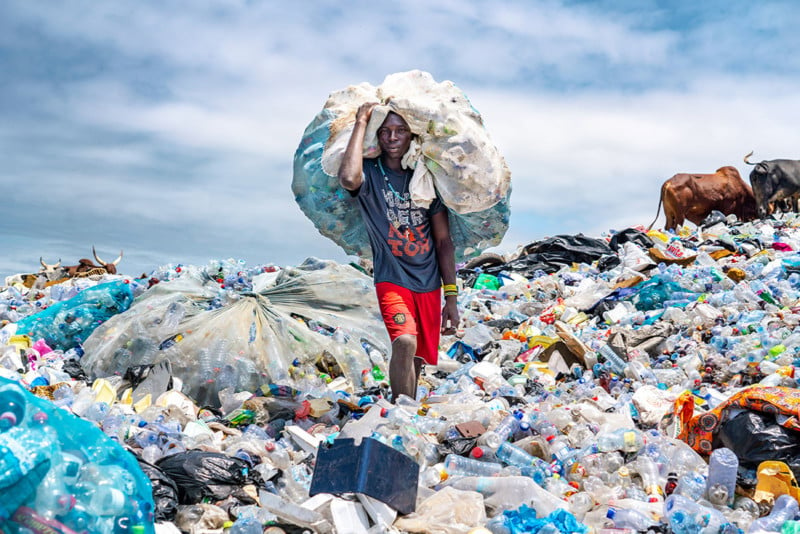

The UN has a new online photo exhibition titled Plastic is Forever. Captured by photographers from around the world, the stark images reveal how mankind's use of plastic has impacted the daily lives and environments of people and animals across the globe.
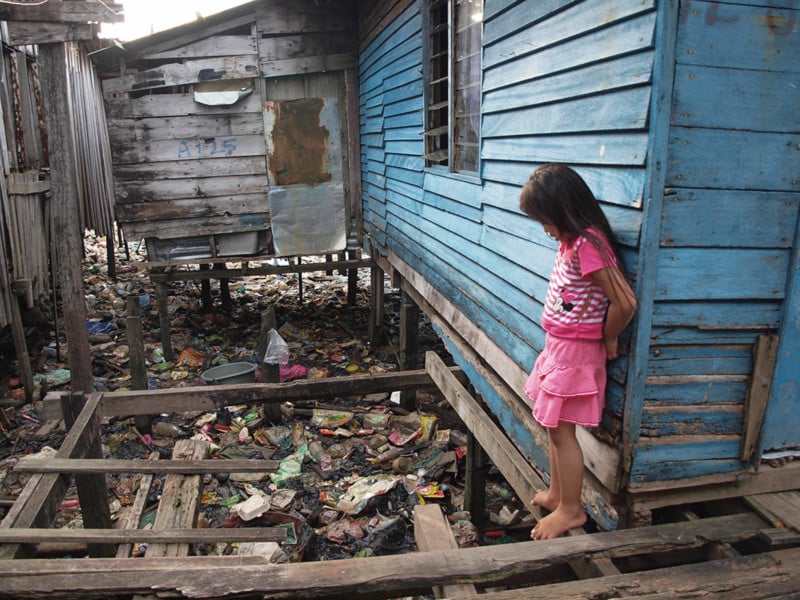 Crying girl beside the house, Malaysia. This girl is growing up in a squatter settlement around Sabah, Malaysia. Garbage piles collected in several such areas are estimated to amount to 216,000 kilograms per month. Photo ©BRS / Fakir Mohamad bin Md. Nor (Malaysia)
Crying girl beside the house, Malaysia. This girl is growing up in a squatter settlement around Sabah, Malaysia. Garbage piles collected in several such areas are estimated to amount to 216,000 kilograms per month. Photo ©BRS / Fakir Mohamad bin Md. Nor (Malaysia)
"Plastic waste can take anywhere from 20 to 500 years to decompose, and even then, it never fully disappears; it just gets smaller and smaller," the exhibition states.
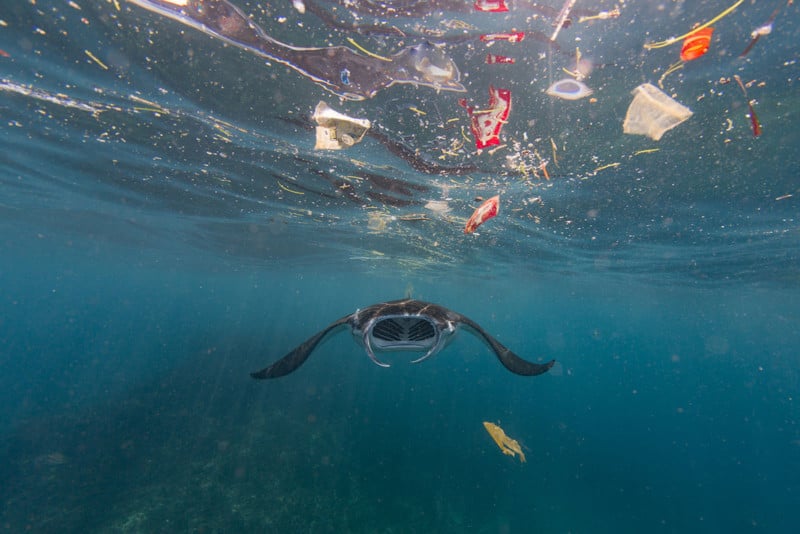 Manta ray plastic soup, Indonesia. A filter-feeding manta ray attempts to eat amidst the plastic in Bali's Nusa Penida. Recent research has shown that these manta rays ingest as much as 137 pieces of plastic an hour, which exposes their population to unknown long-term risks. Photo ©BRS / Vincent Kneefel (The Netherlands)
Manta ray plastic soup, Indonesia. A filter-feeding manta ray attempts to eat amidst the plastic in Bali's Nusa Penida. Recent research has shown that these manta rays ingest as much as 137 pieces of plastic an hour, which exposes their population to unknown long-term risks. Photo ©BRS / Vincent Kneefel (The Netherlands)
Of the 8.3 billion tons of plastic that has ever been made, half of it was produced in just the last 13 years.
"Microplastics in particular have been found in every corner of the globe, from the peak of Mount Everest to the trough of the Mariana Trench," the UN writes. "In fact, it has been estimated that humans ingest a credit card worth of plastic per week!
"Yet of all discarded plastic so far, 12% has been incinerated, only 9% has been recycled, and the remainder has either been disposed of in landfills or released into the environment."
It's the plastic that has been piling up in landfills and littering the natural world that the photos in the new exhibition focus on.
"This year, we asked people from all walks of life around the world to share with us photos that showcase how the indiscriminate use of plastic waste is impacting their daily lives and surroundings," the UN writes. "We are proud to present to you the top-tier entries."
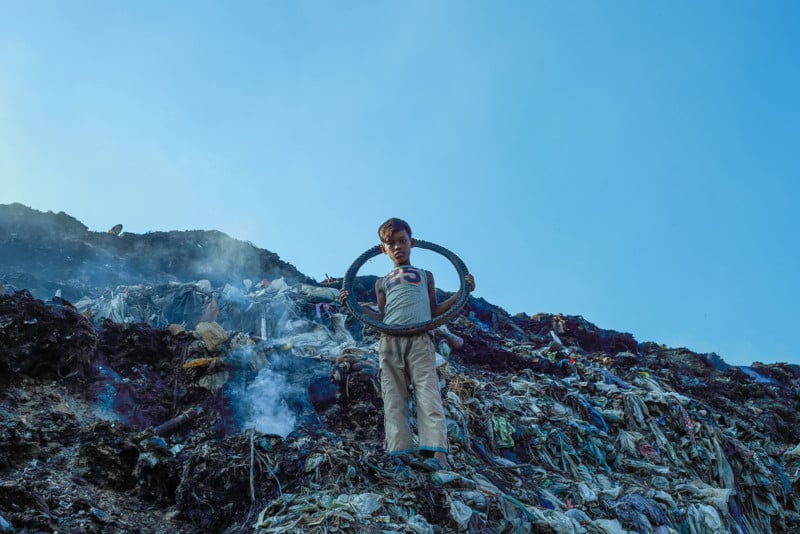 Live with the environment, Bangladesh. These boys spend their days fighting for food and goods. It’s a daily war for them in the depot of Chittagong, Bangladesh. Photo ©BRS / Muhammad Amdad Hossain (Bangladesh)
Live with the environment, Bangladesh. These boys spend their days fighting for food and goods. It’s a daily war for them in the depot of Chittagong, Bangladesh. Photo ©BRS / Muhammad Amdad Hossain (Bangladesh) 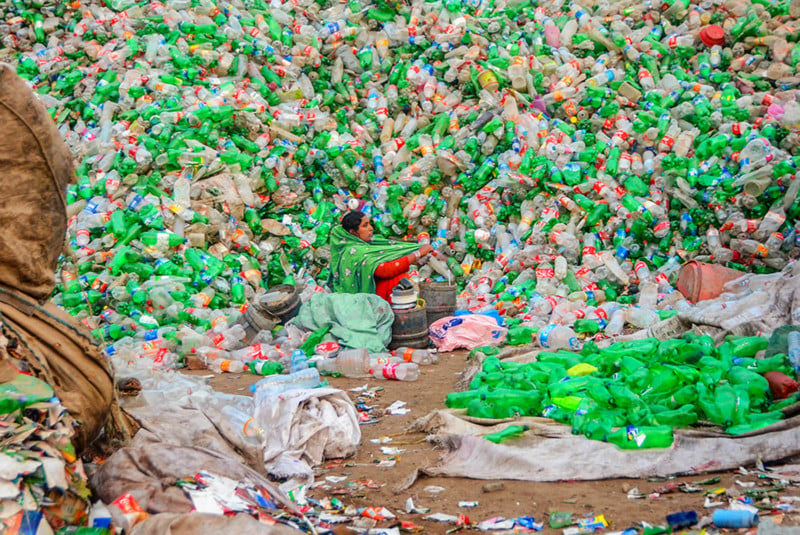 A woman scavenges for survival in a mountain of plastic waste, Pakistan. This woman is collecting and separating plastic bottles according to their type, so she can then sell them to recycling factories in Mandi Bahauddin Punjab, Pakistan. Photo ©BRS / Sufyan Arshad (Pakistan)
A woman scavenges for survival in a mountain of plastic waste, Pakistan. This woman is collecting and separating plastic bottles according to their type, so she can then sell them to recycling factories in Mandi Bahauddin Punjab, Pakistan. Photo ©BRS / Sufyan Arshad (Pakistan) 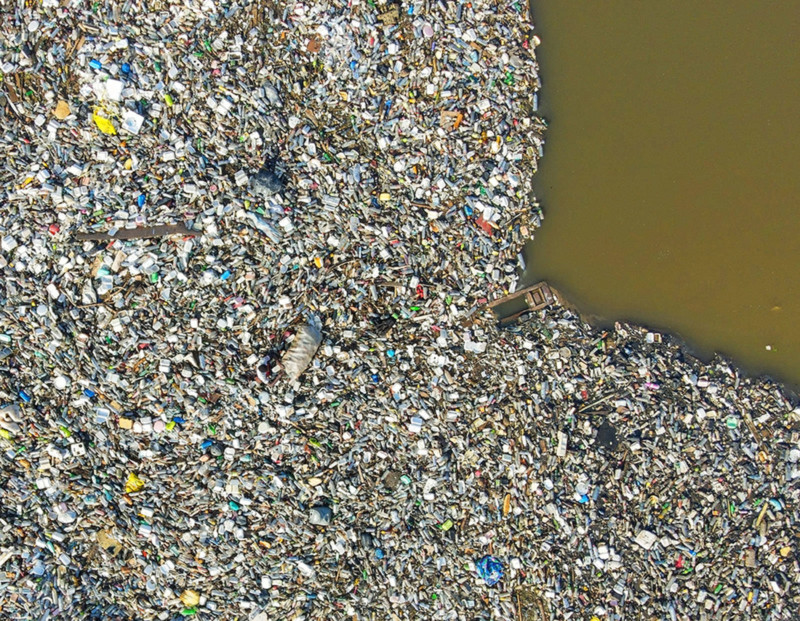 Aerial view of the Korle Lagoon, choked with single-use plastic, Ghana. Major drainage systems in Accra, Ghana's capital city, empty single-use plastic waste into the ocean through the Korle Lagoon. The urban poor sometimes swim in it to recover recyclable material. Photo ©BRS / Muntaka Chasant (Ghana)
Aerial view of the Korle Lagoon, choked with single-use plastic, Ghana. Major drainage systems in Accra, Ghana's capital city, empty single-use plastic waste into the ocean through the Korle Lagoon. The urban poor sometimes swim in it to recover recyclable material. Photo ©BRS / Muntaka Chasant (Ghana) 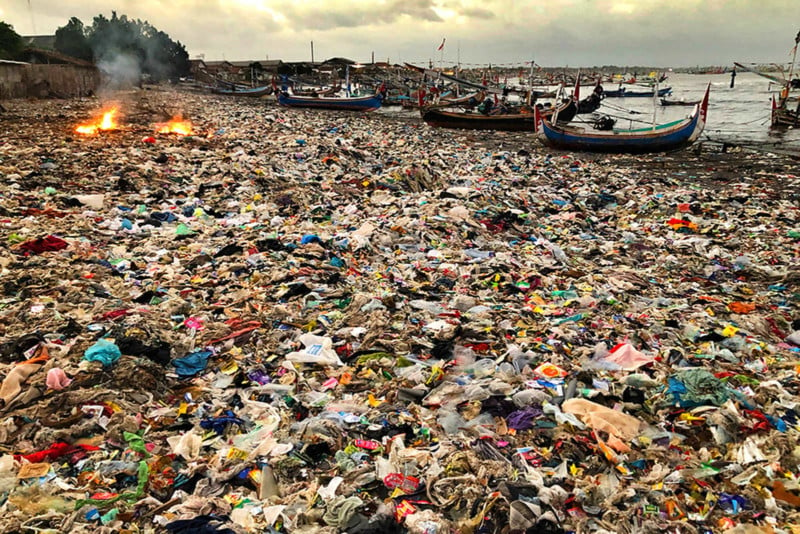 Beach on fire, Indonesia. This local beach in Java, Indonesia, has become an illegal dumpsite for plastic waste. One of the residents can be seen burning the plastic, so it doesn’t enter her house at high tide. Photo ©BRS / Vincent Kneefel (The Netherlands)
Beach on fire, Indonesia. This local beach in Java, Indonesia, has become an illegal dumpsite for plastic waste. One of the residents can be seen burning the plastic, so it doesn’t enter her house at high tide. Photo ©BRS / Vincent Kneefel (The Netherlands) 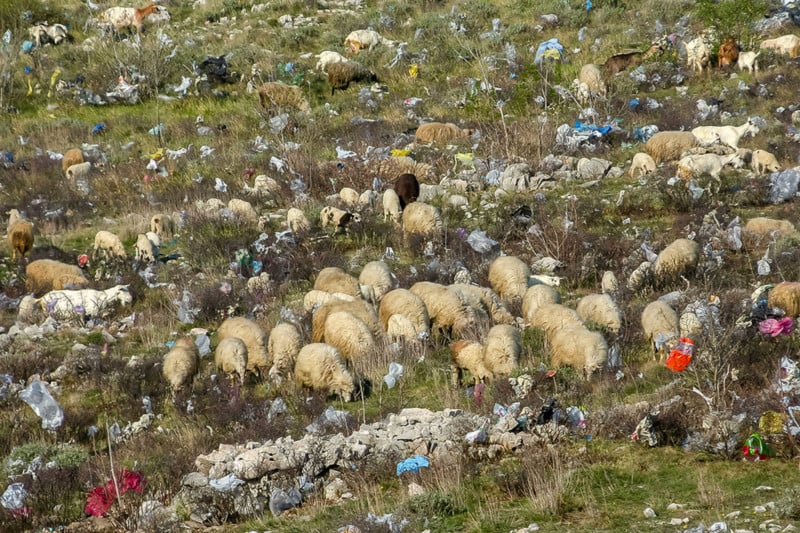 Bon appétit, Adriatic Sea. Trash heaps near the Adriatic Sea where the Bura wind spreads plastic waste onto the grazing fields. Photo ©BRS / Goran Dorić (Croatia)
Bon appétit, Adriatic Sea. Trash heaps near the Adriatic Sea where the Bura wind spreads plastic waste onto the grazing fields. Photo ©BRS / Goran Dorić (Croatia) 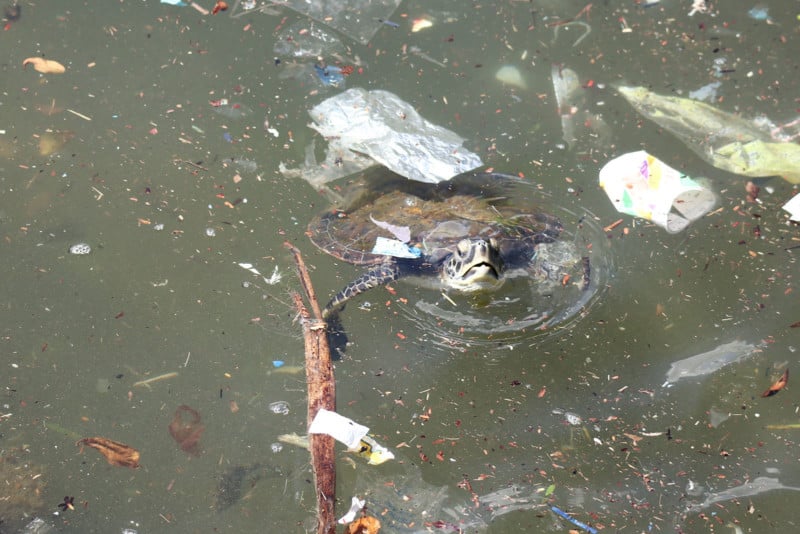 Chelonia Mydas comes up for a breath amongst debris, Brazil. A young sea turtle is trying to breathe in a puddle of water filled with plastic in Niteroi, Rio de Janeiro, Brazil. Photo ©BRS / Heidi Acampora (Brazil)
Chelonia Mydas comes up for a breath amongst debris, Brazil. A young sea turtle is trying to breathe in a puddle of water filled with plastic in Niteroi, Rio de Janeiro, Brazil. Photo ©BRS / Heidi Acampora (Brazil) 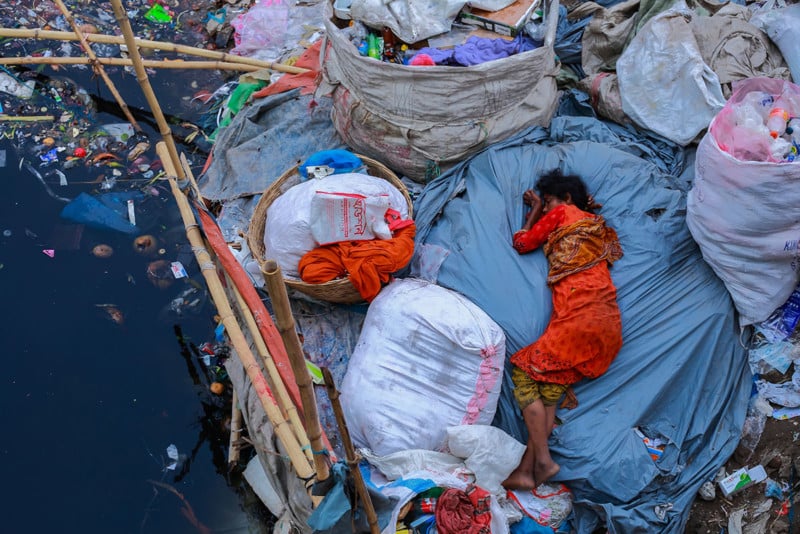 Falling asleep, Bangladesh. A large number of homeless people in Dhaka, Bangladesh have lost their property due to natural disasters. For them, an asphalt street is the best they can hope for, otherwise they have to sleep on plastic trash. Photo ©BRS / Muhammad Amdad Hossain (Bangladesh)
Falling asleep, Bangladesh. A large number of homeless people in Dhaka, Bangladesh have lost their property due to natural disasters. For them, an asphalt street is the best they can hope for, otherwise they have to sleep on plastic trash. Photo ©BRS / Muhammad Amdad Hossain (Bangladesh) 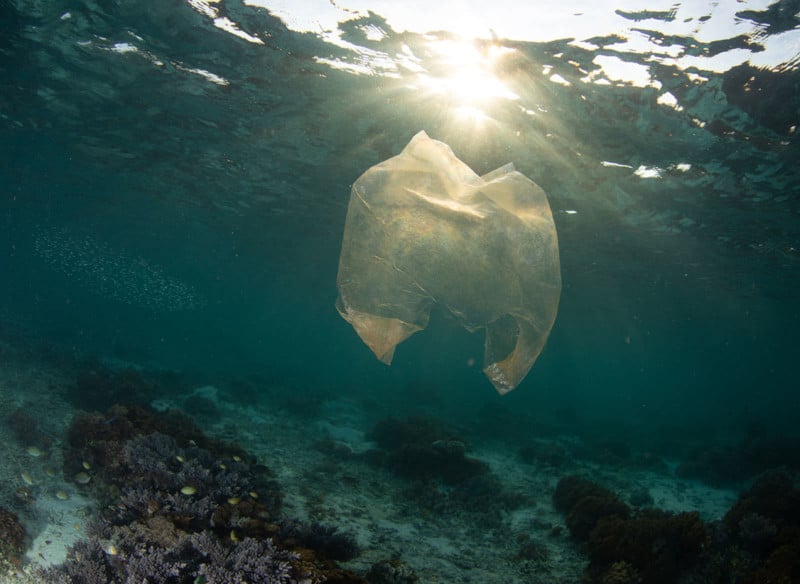 Ghost jelly, Indonesia. On the reef of a small coastal village in the Indonesian Banggai Archipelago, the villagers are doing their best to fight against plastic pollution. Plastic bags like this one represent a hollow deceit for animals that prey on jellyfish, such as sea turtles. Photo ©BRS / Shannon Switzer Swanson (The United States of America)
Ghost jelly, Indonesia. On the reef of a small coastal village in the Indonesian Banggai Archipelago, the villagers are doing their best to fight against plastic pollution. Plastic bags like this one represent a hollow deceit for animals that prey on jellyfish, such as sea turtles. Photo ©BRS / Shannon Switzer Swanson (The United States of America) 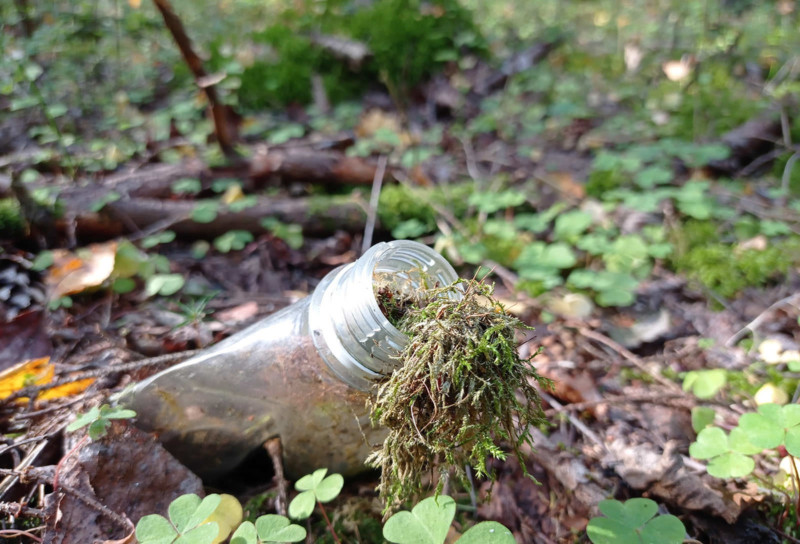 Nature message in a bottle, Lithuania. Ever since ancient times, Lithuanian forests have been a place of tranquillity. Now nature is sending us a message, sadly in a plastic bottle. Photo ©BRS / Jurgita Šukienė (Lithuania)
Nature message in a bottle, Lithuania. Ever since ancient times, Lithuanian forests have been a place of tranquillity. Now nature is sending us a message, sadly in a plastic bottle. Photo ©BRS / Jurgita Šukienė (Lithuania) 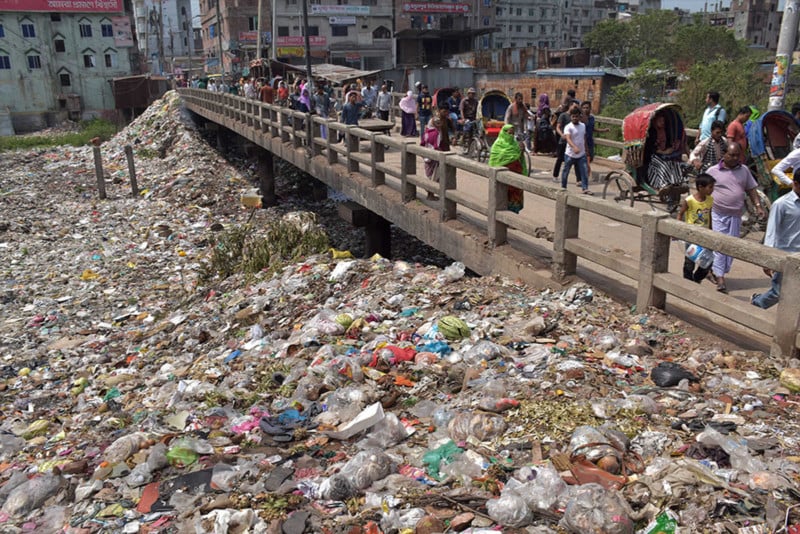 Plastic river, Bangladesh. Once an important commercial waterway, the Buriganga river in the southwest outskirts of Dhaka, Bangladesh, has now turned into a plastic river. Photo ©BRS / Shahriar Hossain (Bangladesh)
Plastic river, Bangladesh. Once an important commercial waterway, the Buriganga river in the southwest outskirts of Dhaka, Bangladesh, has now turned into a plastic river. Photo ©BRS / Shahriar Hossain (Bangladesh) 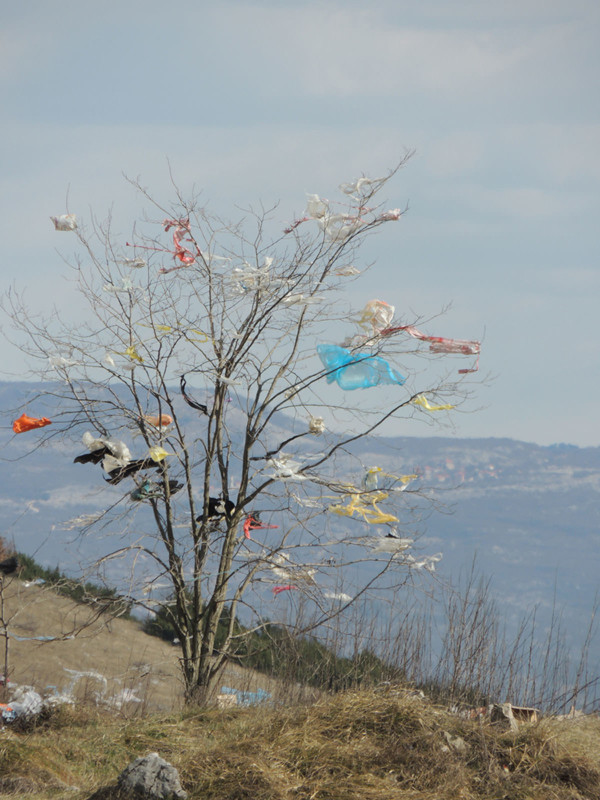 Shame, Croatia. Countryside 30 km outside Split, Croatia, after a great storm. Photo ©BRS / Đurđica Milosavljević (Croatia)
Shame, Croatia. Countryside 30 km outside Split, Croatia, after a great storm. Photo ©BRS / Đurđica Milosavljević (Croatia) 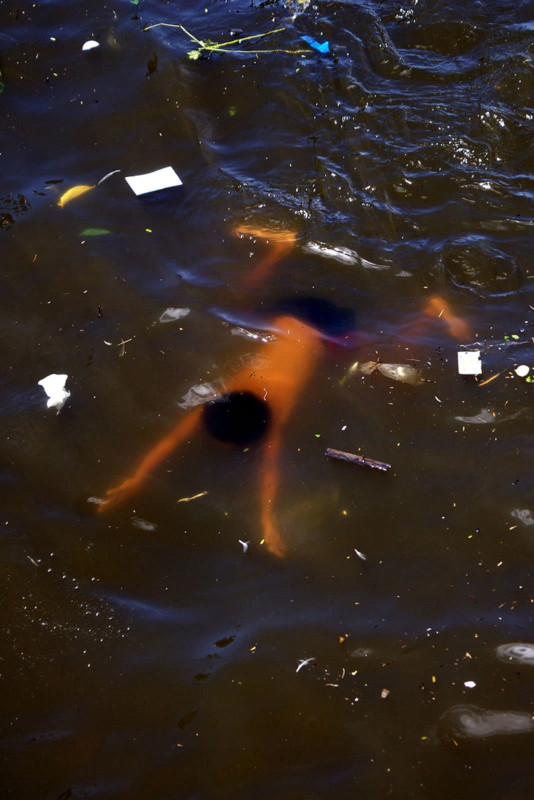 Survival, Philippines. A youngster takes a swim in a river polluted with plastic and other waste in Bocaue, Philippines. Photo ©BRS / Jophel Botero Ybiosa (Philippines)
Survival, Philippines. A youngster takes a swim in a river polluted with plastic and other waste in Bocaue, Philippines. Photo ©BRS / Jophel Botero Ybiosa (Philippines) 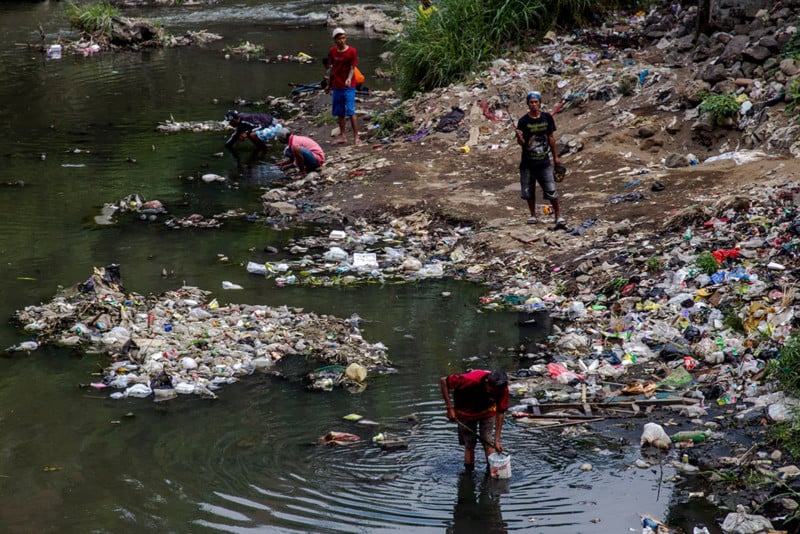 The plastic in our river, Indonesia. Fishing in the Brantas river of the East Java province, Indonesia, means going through loads of plastic trash, discarded by the residents of thousands of buildings. Photo ©BRS / Fully Syafi Handoko (Indonesia)
The plastic in our river, Indonesia. Fishing in the Brantas river of the East Java province, Indonesia, means going through loads of plastic trash, discarded by the residents of thousands of buildings. Photo ©BRS / Fully Syafi Handoko (Indonesia) 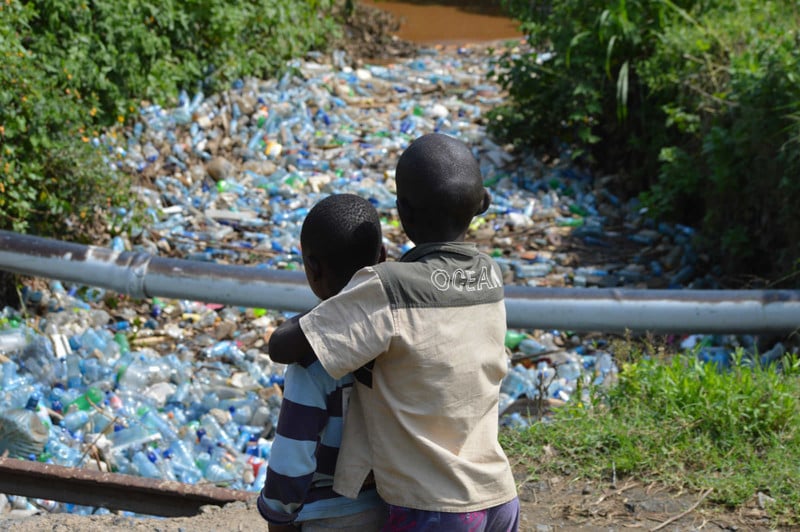 Two boys, Kenya. The Njoro River flows from the Mau Forest, continuing along several residential areas. By the time it reaches Lake Nakuru, a UNESCO World Heritage Site in Kenya, it is filled with plastic. Photo ©BRS / James Wakibia (Kenya)
Two boys, Kenya. The Njoro River flows from the Mau Forest, continuing along several residential areas. By the time it reaches Lake Nakuru, a UNESCO World Heritage Site in Kenya, it is filled with plastic. Photo ©BRS / James Wakibia (Kenya)
"Let’s work together to find a sustainable way to co-exist with plastic," the UN writes. "If #PlasticIsForever, then society needs to re-think and re-shape our relationship with this complex, useful and ubiquitous material."
The photographs in this exhibition were selected from winners of The Plastic Waste Partnership photo contest put on by the Basel Convention, the international treaty that's designed to reduce the amount of hazardous waste transferred from developed to less-developed nations. You can find a larger selection of photos in the online exhibition over on the UN website.
Image credits: Header photograph by ©BRS / Muntaka Chasant. All photographs courtesy the UN.







#culture #features #news #environment #exhibition #landfill #plastic #plasticwaste #pollution #un #waste